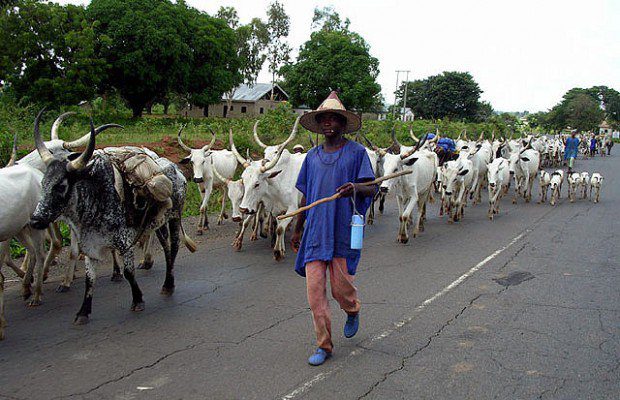Political Issues
Ruga Settlement And Why We Must Navigate Carefully -By Gidado Yushau Shuaib
Another reason why the Ruga kite did not fly was that the nation, presently, is deeply fragmented along ethno-religious lines, which is a situation that makes it difficult to build consensus around important things that matter for our socio-economic progress.

The rationale behind the recently suspended Ruga settlement project, as an initiative of the President Muhammadu Buhari administration, was to help eliminate the age-long practice of open grazing of cattle by Fulani pastoralists, which has been the source of numerous farmer/herder clashes.
However, shortly after the announcement of the programme, different shades of opinion sprout up, with some believing that it was a deliberate effort of the president to accrue favour to his Fulani ethnic group, just as many saw the move as an opportunity for the president to compensate rampaging rural bandits – more often tagged as ‘Fulani herdsmen’ – due to the same ethnic lineage he shares with them.
These Fulani herdsmen are considered to be so criminal, to such an extent that the recent killing of Mrs. Olufunke Olakunrin, the daughter of Pa Reuben Fasoranti, the leader of the Yoruba socio-political group, Afenifere, was linked to them. The development has generated a lot of controversies across Nigerians of different persuasions, with one of the more significant of these allegations being the one shared by the brother to the late Olafunke, claiming to have been reliably informed that attackers who shot his sister were Fulani herdsmen.
However, the police commissioner within the jurisdiction of the crime, on the other hand, noted that the attack was carried out by bandits who came on the road and fired sporadically at motorists. From the foregoing, the Fulani ethnic group seems to have become an endangered species. Aside the fact that most security challenges have been blamed on Fulanis, anytime a herd of cattle is sighted roaming the streets of our towns, the submission by many people, especially on social media, is that these people do whatever the like because their brother is at the helm of national affairs.
What a blatant misrepresentation! As far as I am concerned, these herders don’t give a hoot who the president is; they are only concerned about where to locate greener pasture for their cattle. If we must tell ourselves the truth, in as much as these people remain wanderers, no amount of misrepresentation or stereotyping, can change their lot.
More truth be told, the Ruga settlement project is impressive but the mode of its delivery and the timing of the project has been wrong. For instance, why should the government introduce such an impressive policy when the atmosphere is much charged with mutual ethnic suspicions across the country, and pervasive claims of Fulaninisation and Islamisation agendas?
Similarly, failure on the part of the government to provide a holistic document to explain the Ruga policy and its benefit received a backlash. The denial by Professor Yemi Osinbajo, saying his office has absolutely nothing to do with the project, and that the Ruga programme was not under his supervision, was equally unwholesome.
The permanent secretary of the Federal Ministry of Agriculture and Rural Development, Mohammed Umar, had attempted to shed light on the debacle, but it seems that his words have been falling on deaf ears. Mr. Umar was quoted as saying: “It is one project that will help to take them away from our streets and stop them from wandering in the bush. And in the next five to ten years, you will never see a nomad moving about, wandering or kidnapping. And this will help to address some security challenges we are contending with now.”
The permanent secretary’s comment had hardly come through when various socio-cultural groups started expressing their displeasure with the programme. They described the establishment of cattle-rearing settlements for herdsmen as a move to enable an ethnic colonisation in the country.
Another reason why the Ruga kite did not fly was that the nation, presently, is deeply fragmented along ethno-religious lines, which is a situation that makes it difficult to build consensus around important things that matter for our socio-economic progress. Also, the realisation that the Ruga settlements will support the livelihood of herders, while neglecting farmers, who many believe are the main victims of the conflict between both groups, has also elicited scathing condemnations from many people, who unabashedly oppose the idea.
I think that the call for the suspension of the Ruga project stemmed from the age-long rivalry between herders and farmers. While herders are gradually feeling relieved from the troubles of farmers, the farmers are however feeling cheated by the programme because they own the lands. As expected, Governors Samuel Ortom of Benue and Darius Dickson Ishaku of Taraba States were the first to reject the move for setting up Ruga settlements in their states. This stemmed from the fact that the indigenes of these states are predominantly farmers, who would not stand the sight of settler-herders in their states.
By and large, I want to believe that it is only an incurable optimist, who would have concluded that debates on the project will not assume regional, religious and ethnic dimensions, right from the outset. In the meantime, it behoves on the federal government to go back to the drawing board, to re-strategise, brainstorm and redesign how to acheve the noble objectives they seek for the programme. They should be clear that without navigating the required sensitivities carefully, the programmes and projects of finding sustaining resolution to the farmer-herder conflicts will be once more greeted by unmitigated uproars, and ultimately end up dead-on-arrival again.
Gidado Yushau Shuaib, the editor of The News Digest, can be reached on giddyshuaib@gmail.com.



















